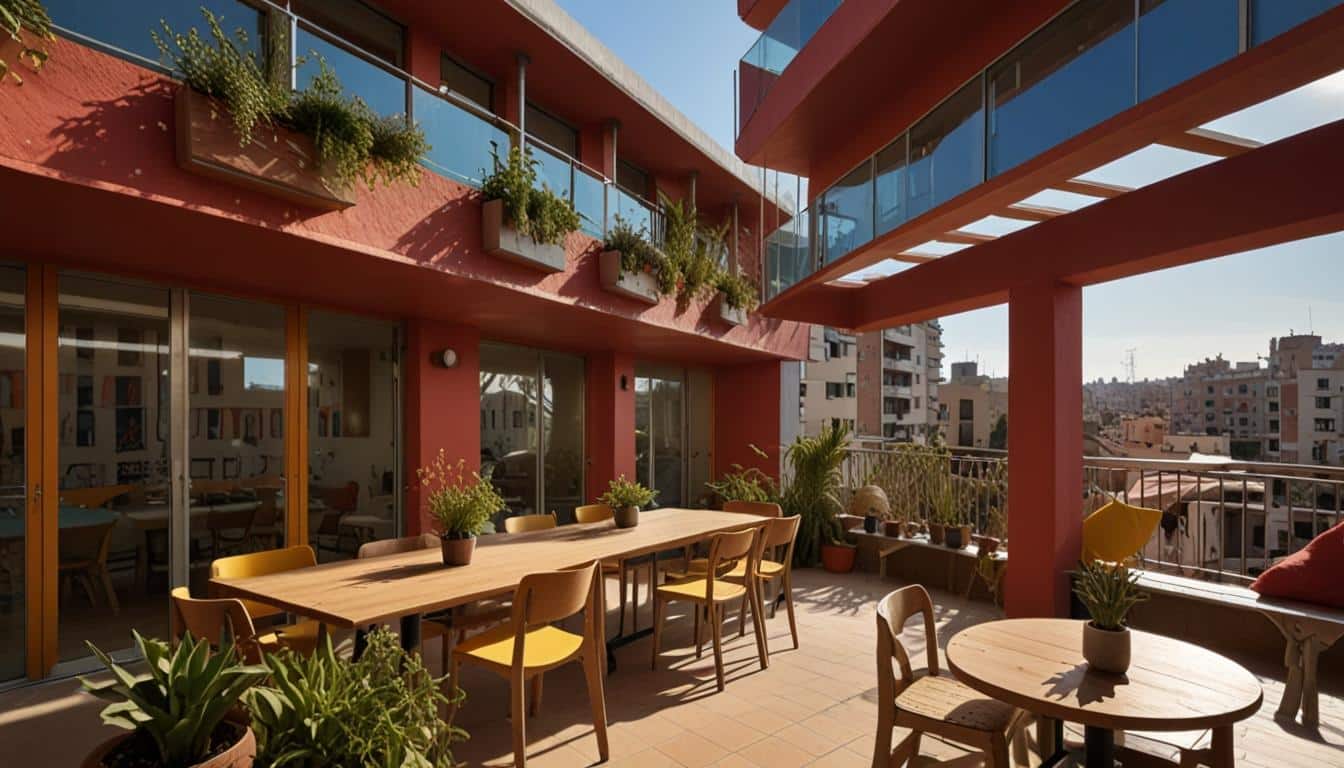As tourism and real estate speculation strain local housing, Barcelona is leading with cooperative models and innovative regulations to create sustainable living environments.
Barcelona, a city renowned for its vibrant culture and historical allure, has been at the forefront of addressing the pressing urban issue of housing crises exacerbated by tourism and real estate speculation. As Barcelona welcomes throngs of foreign tourists each year, this influx has put immense pressure on local housing, often displacing residents and transforming traditional neighbourhoods into tourist-centric zones.
In response, the city has taken innovative steps to combat these challenges, including the regulation of licenses for tourist accommodations and the promotion of alternative housing solutions such as cooperatives. One prominent player in this endeavour is Lacol, a cooperative of architects based in Barcelona’s Sants neighbourhood since 2009. Lacol is leading efforts in utilising architecture as a pivotal instrument to foster sustainable and community-oriented living environments.
Lacol’s approach revolves around the concept of cooperative housing, which they present as a communal strategy to tackle the collective issue of housing access. Their model rests on three foundational principles: collective housing that reimagines both private and communal spaces to facilitate neighbourly interactions, sustainability with an emphasis on environmental stewardship during a building’s lifecycle, and the robust engagement of residents in the management and ongoing use of their living spaces.
The architects at Lacol believe that housing should be viewed as a fundamental right rather than a commodity for financial speculation. They advocate for housing solutions that prioritise affordability, inclusivity, and sustainability, countering the trend of luxury housing designed for minimal occupancy by affluent individuals or for tourism purposes.
The La Borda Building and La Balma, developed in collaboration with Laboquería, stand as testaments to Lacol’s philosophy. These projects embody the ethos of community-managed housing and reflect an innovative step away from conventional rental or purchase models. The cooperative structure of these developments enables shared communal facilities such as kitchens, which are backed by a social framework that nurtures communal living.
Lacol operates on a collaborative methodology that underscores horizontal teamwork. Project management is typically shared among one or two architects, with numerous stages of collective brainstorming and creation among the cooperative’s members. This participatory method not only enhances the architecture project but also ensures that it resonates with all members, culminating in a collectively signed final design.
This innovative approach to housing has demonstrated notable benefits, producing residences better tailored to the occupants’ true needs. These cooperative housing solutions eschew the standardised market-driven formats, resulting in adaptable living spaces over time, with shared amenities that promote diverse forms of coexistence.
Supported by proactive city policies and driven by the ingenuity of cooperative designs such as those championed by Lacol, Barcelona continues to blaze a trail in reimagining viable and sustainable housing solutions in urban settings heavily influenced by tourism and speculative real estate ventures.

